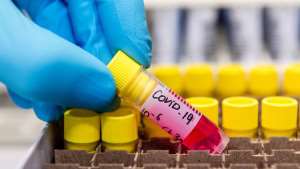
The challenge of maintaining national economies during the Covid-19 pandemic is not one that depends solely on monetary and fiscal policies. The economic realities will be mitigated by adherence to sound biomedical interventions and behavioral principles. A carefully integrated approach of these components of Ghanaian life will eventually protect our people and support the management of the economy, without eroding the rights of citizens.
We have done a number of things right in the biomedical and public heath surveillance aspects of managing the impact of the pandemic. The partial lockdown has aided in robust case-finding , which is critical in “flattening the curve”, so that a surge of new cases does not overwhelm the health care system.
It has been necessary to restrict the movements of citizens but along the way, because of poor mission definition and execution, the translation of the real objectives of the lockdown into reality has fallen far short of the mark.
The reality is that we will continue to have struggles with new viruses in the years ahead. It is therefore important, to think very longitudinally about managing this problem and ensure that the population’s understanding of basic biology and germ theory becomes rock-solid in the national psyche. It is in understanding how viruses work and kill that behavioral change will occur.
There are two core issues that underlie the behavioral changes required to halt the spread of COVID-19. The first is social distancing because as long as people are far enough apart, it is impossible for the virus to move from one person to the other. This of course is a pipe dream in high density accommodations in our large cities. The second, has to do with facial barriers in the form of masks or artificial coverings that impede the transmission of the virus from asymptomatic carriers and individuals who are actively symptomatic to the rest of the population. The greatest danger is from asymptomatic carriers because they are not visibly ill. Everyone must be mandated to have a mask or face covering, at a minimum, in public spaces.
When one examines information in the public domain on how the security services are implementing the partial lockdown, one wonders what the specific charge drives their actions. What is the mission of the security agencies in this public health emergency?
Asking a single individual walking in a public space, what it their destination is, may have security implications but is of no public health significance. This is seen often in videos and in news reports depicting the actions of the police and military in implementing the lockdown.
Long lines of cars are seen at checkpoints with soldiers or police officers looking in, without masks on and asking where people are going. What is critical, is that these frontline workers themselves should be protected with masks and they should be modeling and checking if those in the vehicles are also wearing masks while they are in a public space. The security forces should be in a teaching and persuasive role more than an enforcement role. They should have received ample training in understanding these issues prior to deployment.
The management of traffic in markets is also critical because of the food supply chain. One wonders whether the various municipal authorities actually know the safe maximum number of people that each community market can hold. If this information is available from the Ghana National Fire Service (GNFS), then it is possible for security forces to arrive early and have clarity on the number of people who are allowed into a market per hour, with masks or face coverings on. They also should be engaged in ensuring that those who are waiting to enter the markets are properly lined up, 6 feet apart from each other. This is not regular crowd control. This is a very specific and nuanced job, which must be understood clearly by those to whom the implementation of public health policy during this pandemic is entrusted. We also have an opportunity to improve and maintain hygienic practices of hand washing, wearing of gloves and masks among sellers of food and produce in markets long after this pandemic is gone for the benefit of total population health outcomes.
Any activity which brings crowds of people together without masks on and without social distance being supported by security forces, increases the risk to the general population. If this basic principle is understood and applied, many people will be able to engage in a fair amount of economic activity, without endangering themselves or others. Simply using the blunt instrument of telling people to stay home without giving them options for survival by educating them and by helping them apply what they have been taught, will be for naught.
In this regard, the supplying of cooked food to crowds of people in the inner cities is more dangerous than helpful. If these folks are given the supplies they need in an orderly and controlled manner, with the assistance of the security forces, helping them to maintain proper social distance, while waiting to be served, they will be more than happy to cook food to their own taste and stay at home. Not to mention the environmental degradation involved with serving packed meals.
We should recognize the opportunities that are present in this crisis to teach basic hygiene and to support the public in becoming more orderly, as they seek services. This will also help our security forces to engage with citizens in a non-adversarial manner to promote everyone’s health without the use of force.
Finally, this is a rare opportunity for African countries to work together in the implementation of shared complimentary programs in preventing the horrible outcomes we have seen in Europe and America.
T. P. Manus Ulzen is Professor of Psychiatry and Behavioral Medicine at the University of Alabama, Annual Visiting Professor at the University of Cape Coast School of Medical Sciences and author of “Java Hill: An African Journey” – A historiography of Ghana
[email protected]
www.javahillelmina.wordpress.com
Twitter: @thaddeusulzen





 Supreme court declares payment of wages to spouses of President, Vice President ...
Supreme court declares payment of wages to spouses of President, Vice President ...
 Publish full KPMG report on SML-GRA contract – Bright Simons to Akufo-Addo
Publish full KPMG report on SML-GRA contract – Bright Simons to Akufo-Addo
 Kumasi International Airport to begin full operations by end of June
Kumasi International Airport to begin full operations by end of June
 Election 2024: Our ‘real challenge’ is getting ‘un-bothered’ youth to vote – Abu...
Election 2024: Our ‘real challenge’ is getting ‘un-bothered’ youth to vote – Abu...
 [Full text] Findings and recommendations by KPMG on SML-GRA contract
[Full text] Findings and recommendations by KPMG on SML-GRA contract
 Renegotiate SML contract – Akufo-Addo to GRA, Finance Ministry
Renegotiate SML contract – Akufo-Addo to GRA, Finance Ministry
 J.B Danquah-Adu murder trial: Sexy Dondon to Subpoena Ken Agyapong, Ursula Owusu
J.B Danquah-Adu murder trial: Sexy Dondon to Subpoena Ken Agyapong, Ursula Owusu
 Galamsey: Five Burkinabes jailed 20 years each for mining
Galamsey: Five Burkinabes jailed 20 years each for mining
 'It's no crime' – Abu Sakara defends Alan's exit from NPP
'It's no crime' – Abu Sakara defends Alan's exit from NPP
 'We know all your houses, pay your bills now or we’ll disconnect you; we're all ...
'We know all your houses, pay your bills now or we’ll disconnect you; we're all ...
